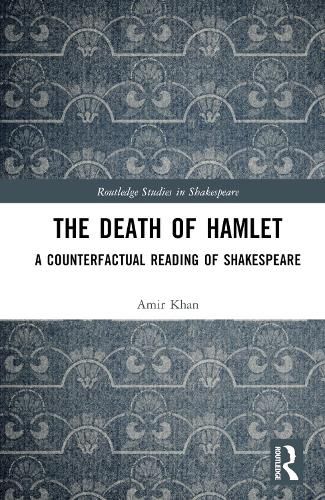Readings Newsletter
Become a Readings Member to make your shopping experience even easier.
Sign in or sign up for free!
You’re not far away from qualifying for FREE standard shipping within Australia
You’ve qualified for FREE standard shipping within Australia
The cart is loading…






This book is an intervention in Hamlet scholarship. In Thus Spake Zarathustra (1885), Nietzsche famously posited the death of God, taken to mean the dissolution of all horizons within which human beings construct a plausible ontology that gives words significance. The idea of God, as a transcendental signified (to borrow from Derrida), underwrites meaning and values. Socrates placed knowing as the highest philosophical good over two millennia ago; however, once we find that God (i.e. any transcendental signified) is unknowable, the world vanishes. In a world bereft of concepts and meaning, Nietzsche's philosophical project becomes one of "redeeming" pure willing as itself constitutive of world.
Hamlet and the criticism surrounding it is caught within competing horizons we know are circuitous and unending. We tiresomely make theoretical rounds between competing sets of interpretations that boil down to either establishing meaning within the play (the text transcending its history and revealing universal truths) or situating the text within its proper historical timeframe in order to get it to speak. In short, we are trapped between contextualizing and decontextualizing approaches. Yet we know both approaches, as competing horizons we commit to at the outset, are dead. But to abandon both at the outset means that the text, Hamlet, is itself dead. So how to get it to speak?
$9.00 standard shipping within Australia
FREE standard shipping within Australia for orders over $100.00
Express & International shipping calculated at checkout
This book is an intervention in Hamlet scholarship. In Thus Spake Zarathustra (1885), Nietzsche famously posited the death of God, taken to mean the dissolution of all horizons within which human beings construct a plausible ontology that gives words significance. The idea of God, as a transcendental signified (to borrow from Derrida), underwrites meaning and values. Socrates placed knowing as the highest philosophical good over two millennia ago; however, once we find that God (i.e. any transcendental signified) is unknowable, the world vanishes. In a world bereft of concepts and meaning, Nietzsche's philosophical project becomes one of "redeeming" pure willing as itself constitutive of world.
Hamlet and the criticism surrounding it is caught within competing horizons we know are circuitous and unending. We tiresomely make theoretical rounds between competing sets of interpretations that boil down to either establishing meaning within the play (the text transcending its history and revealing universal truths) or situating the text within its proper historical timeframe in order to get it to speak. In short, we are trapped between contextualizing and decontextualizing approaches. Yet we know both approaches, as competing horizons we commit to at the outset, are dead. But to abandon both at the outset means that the text, Hamlet, is itself dead. So how to get it to speak?